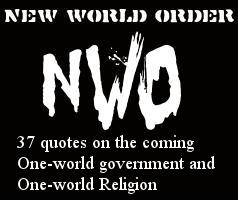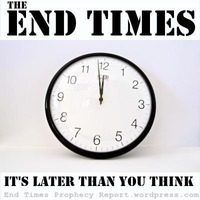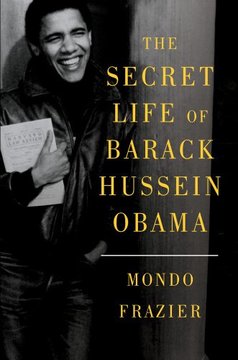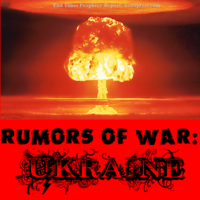The Chinese Milk Scandal:
A Retrospective.

While the investigations continue on an International level, a clear picture is emerging of the extent of this purposeful contamination of milk products/. And it is not flattering to the Chinese government and industry.
But first some background.
China is usually not associated with cows milk--and for good reason. While mares milk and the milk of sheep and goats was common in certain northern pastoral areas of China, milk was rarely drunk with the exception of fermented milk in Mongolia/Tibet.
Historical records reveal that milk and milk products, particularly cheese, were common in China until the introduction of Buddhism. The form of Buddhism adopted by China (and Japan) inexplicably proscribed milk and cheese products. Thus one of mankind's most important food products, cheese--easy to store, very high nutritional and calorie content--and butter, were dropped from the Chinese culinary repertoire. And while other strictures of Buddhism gradually disappeared, the taste for dairy products did not re-emerge.
Of course, milk was not commonly drunk in America or Europe in the 1800s either. It was the advent of the icebox that allowed milk to become associated with first, breakfast and as a cooking ingredient, and later as a drink for children.
But unlike China, the Americans were well aware of the health benefits and the need for mothers to supplement breast milk. Two vast fortunes in America were built on canned milk: Borden's and Carnation. And it was no accident.
As China's infrastructure developed, the Chinese government made a conscious decision to introduce dairy products into the Chinese diet. Farmers were encouraged to raise cows for extra income. Recipes using butter were encouraged. Cows and semen were imported from around the world. Dairies started up, as well as manufacturers of dairy equipment.
It was a huge success.
While the average Chinese will tell you they did not buy a single helping of cheese, government analysis shows Chinese now eat cheese three times a week, on average. Yogurt is extremely popular, particularly among the young, as is ice cream for all ages.
No middle class mother of a young child would think of being without milk in the fridge for her only child--and the health of the young clearly improved in the last 15 years. Milk production was doubling every 8 years or so.
Then it all went wrong.
Sanlu recalls 700 tons of melamine-tainted milk powder
Dateline:September 12, 2008.
The Shijiazhuang-based dairy producer Sanlu announced that the company will recall 700 tons of infant feeding formula ("baby milk powder" 婴幼儿奶粉) that was produced before August 6.
In the announcement Sanlu admitted that some of the products were contaminated by melamine. Previously the company had insisted that the milk products suspected of causing kidney stones in 59 babies were fake products using the Sanlu label.
Now, out of 175 baby formula processors, Sanlu is China's largest. It is 43% owned by Fronterra, a New Zealand Dairy co-op. Fronterra discovered the problem and asked Sanlu to immediately recall all products.
Sanlu refused.
Fronterra reported the problem to the New Zealand government which in turn reported it urgently to the Chinese government. After a week or so, the Chinese government ordered Sanlu to recall all affected milk products.
When did Fronterra notify Sanlu?
August 2, 2008 is the best estimate of a highly secretive communication--six days before the Olympics opened. So the implication is the Chinese government ignored, hid, and downplayed the contamination in order not to detract from the same and give thousands of reporters a story.
Did the Chinese government actually know of the contamination?
We here at DBKP think so.
From News.com. Australia:
A CHINESE company at the centre of the scare over tainted milk powder had asked for government help to cover up the extent of the problem, state media said in the newest development in the widening scandal.
In the Communist Party newspaper the People's Daily, Shijiazhuang city government spokesman Wang Jianguo said they had been asked by the Sanlu Group for help in "managing" the media response to the case when first told of the issue on August 2, six days before the opening of the Olympic Games in Beijing.
...
"Please can the government increase control and coordination of the media, to create a good environment for the recall of the company's problem products," the People's Daily cited the letter from Sanlu as saying. "This is to avoid whipping up the issue and creating a negative influence in society," it added."
And The Asia Times:
Sanlu Dairy Co, the epicenter of the milk scandal, contributed 330 million yuan (US$48.5 million) of taxes to the municipal government of Shijiazhuang, Hebei province, last year. Many companies invite local officials to become "silent partners" in their corporations - in return for "protection" rendered by the powers-that-be. Former Sanlu chairman Tian Wenhua, for example, is said to be on "comradely terms" with Shijiazhuang officials. It is perhaps for this reason that Tian was given the honorary position of deputy to the provincial people's congress.
Now one wonders at the sheer gall of the perpetrators of this crime. Not a year before, Canada, America, and Mexico went nuts when Melamine was added to wheat germ and some 3,600 dogs and cats died.
And there was no idea if the wheat germ had made it's way into human products.
China then went into a defensive aggressive posture, claiming it was being picked on while reassuring the world that its food products were safe. Immediately followed by a ban on Chinese shrimp products, cosmetics, toothpaste, and dumplings for various contaminants. The entire Chinese food industry appeared to be dangerously filthy.
As it turn out, this is truth.
Inexplicably, the GAQSIQ has in the past couple of years awarded dairy giants Sanlu, Meng Niu, and Yili - whose products were found to be tainted with the chemical - the coveted "famous brand" designation. This status meant their products were exempted from routine inspection by quality-control watchdogs.
So a year after wheat was found to be contaminated with melamine--in order to boost it's apparent protein content--Sanlu employs a protein test method that cannot detect melamine? We here are highly skeptical.
There is no doubt that the purchasing records for this milk will never see the light of day. For they will likely reveal that Sanlu purchased watered down milk at a discount, thus making them complicit, likely at the expense of Fronterra.
The issue of fake or tainted milk powder is not new. In 2004, at least 12 infants died after taking in baby formula with no nutritional value. The General Administration of Quality Supervision, Inspection and Quarantine (GAQSIQ), which is responsible for checking milk and related merchandise, has been aware of the illegal use of melamine for a long time.
So where do we stand now?
Four infants, in a one-child nation are dead. 60,000 are ill, many with dangerous kidney stones. More than 20 large milk processors are implicated, giving credence to the theory that the companies intentionally engaged in contamination for profit.
Hundreds of Chinese contaminated products have been found throughout Asia, including Indonesia, Thailand, the Philippines ,as well as Australia, Africa--and who knows where. One of the sources of contamination is milk chocolate, baby cereals, candy, snacks, ice cream, cookies, etc.

As learned in the pet food episode, it is simply dangerous to buy food stuffs from China. The government is not only corrupt, but much of Chinese industry as well.
Imagine the thought process behind intentionally poisoning food in order to earn another $10 for 100 pounds of milk?
When America informed Japan after WWII that many of it's food products were not up to our safety standards, Japan responded by asking who was the best to teach these techniques, then hired them.
When Thailand was told by it's American distributors that it's canned seafoods, particular tuna, were unappetizing, it responded by hiring American experts to create clean canning lines.
China has responded by trying to poison the world.

So, what is melamine and how does it spoof the protein levels in baby formula milk?

Melamine is an organic compounds, a base with chemical formula C3H6N6.
Officially it is 1,3,5-triazine-2,4,6-triamine in the IUPAC nomenclature system (CAS #108-78-1). It is has a molecular mass of just over 126, forms a white, crystalline powder, and is only slightly soluble in water. It is used in fire retardants in polymer resins because its high nitrogen content is released as flame-stifling nitrogen gas when the compound is burned or charred.
Indeed, it is this high nitrogen level - 66% nitrogen by mass - in melamine that gives it the analytical characteristics of protein molecules. Melamine can also be described as a trimer of cyanamide, three cyanamide units joined in a ring. It is described as being harmful according to its MSDS sheet: “Harmful if swallowed, inhaled or absorbed through the skin. Chronic exposure may cause cancer or reproductive damage. Eye, skin and respiratory irritant.
Not something you would want in your infant’s milk.
by pat
images:
* boston.com
* mercopress
* ufwildlife
* chemspider.com
Sources:
http://www.card.iastate.edu/
http://www.news.com.au/story/
http://www.atimes.com/atimes/
http://en.wikipedia.org/wiki/
http://www.sciencebase.com/
http://www.msnbc.msn.com/id/
http://www.tri-cityherald.com/

src="http://d.yimg.com/ds/badge2.js"
badgetype="small-votes">
ARTICLEURL






























No comments:
Post a Comment
Leave your name/nic.
We've changed the comments section to allow non-registered users to comment.
We'll continue like that until it's being abused.
We reserve the right to delete all abusive or otherwise inappropriate comments.